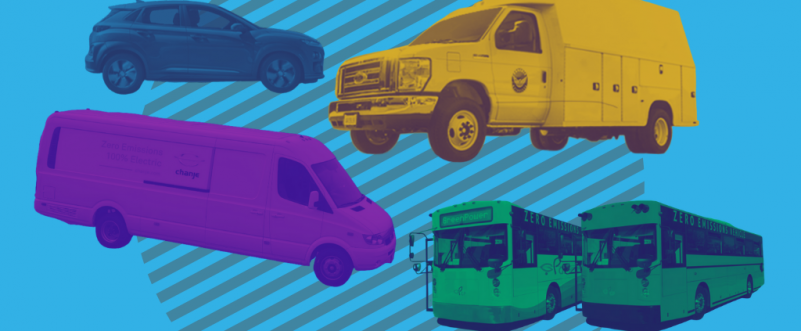Large and small companies across industries that transport goods, people, and services are considering switching their fleets to electric. Here are five electric fleet vehicle options currently available on the market, ready for companies to buy.
Amazon just announced it’s working with Rivian to develop a fully electric delivery truck. FedEx purchased 1,000 electric panel vans in 2019. Last month, UPS said it’ll be ordering 10,000 electric vehicles. Ikea and DHL have already been switching their delivery vehicles to electric. Even the California utility PG&E is building a fleet of electric bucket trucks for service and repairs.
If widespread fleet vehicle electrification is not a trend, we’re not sure what is. And yet, many commercial businesses that thrive on transporting goods and services don’t even have vehicle electrification on their radars.
Some trucking and transit companies exist exclusively to move goods or people from one point to another. Meanwhile, many other business models rely on delivery or transit secondarily to support their main product or service. In either case, our research shows that relatively few of them are considering the switch to EV. Even fewer are actually electrifying.
For a moment, set aside the corporate giants, named above, that are driving the EV fleet trend. We’re interested in exploring the myriad local, smaller-scale businesses that, combined, make up a large portion of the economy as either or both first mile/last mile fleet operators.
For example:
- Pharmaceutical or medical device home delivery
- Visiting nurses or at-home senior care
- Rideshare services like ACCESS
- Custodial/housekeeping services
- Laundry/dry cleaning for restaurants, hotels, hospitals, etc.
- Food trucks
- Roadside assistance
- Mobile pet groomers
- Plumbers
- Roofers, Carpenters, Electricians
- HV/AC repair
- Building Maintenance/Facilities
- Funeral services
- Government operations, including meter readers, animal control and libraries
And these are just a few to get us started…
Perhaps their hesitation is budget-related, or stems from range anxiety, or is caused by a general leeriness about the EV industry. Maybe it’s just that their company fleets are too small to bother switching. Or maybe it’s the old chicken-and-egg problem: companies won’t buy electric fleet vehicles unless they know for sure they’ll be able to charge them, and ample charging won’t materialize until the industry knows enough businesses have purchased EVs to make charging station installation worth their time and money.
Whatever is causing the hesitation, our research suggests it shouldn’t be due to any lack of available fleet vehicles. In fact, there are quite a few models on the market that ought to make considering a switch to EVs fairly easy.
And just imagine the transformation that could occur, given widespread adoption – in terms of roadway infrastructure, noise reduction, long-term vehicle maintenance cost savings, even in local air quality indicators and, potentially, public health.
Below are five electric vehicle models that could make great fits for the types of commercial businesses we’ve listed above and could help solve first-mile/last-mile issues.
Chanje V8100
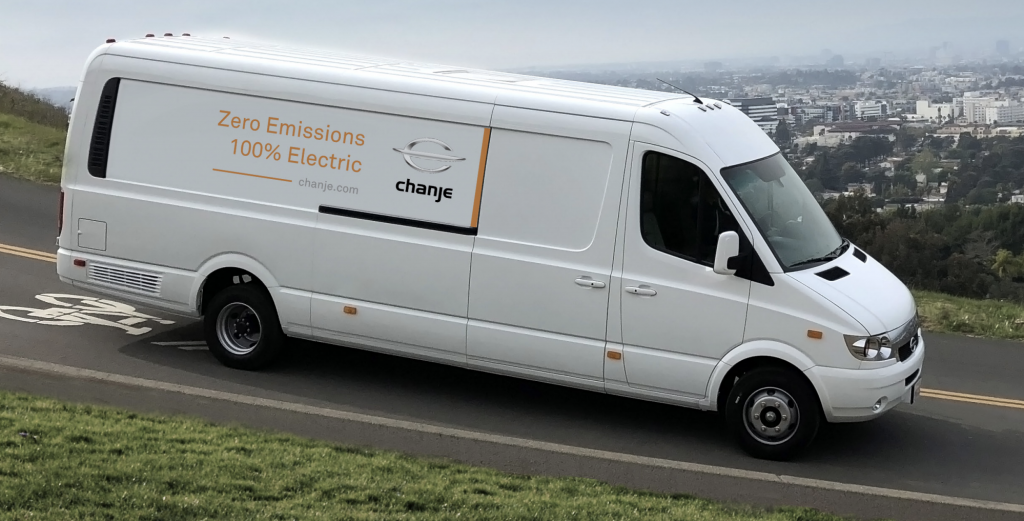
This is a medium-duty panel van with 150 miles of range and 675 cubic feet of storage. FedEx just announced it’s purchasing 1,000 of the Chanje V8100 to jumpstart its fully electric fleet. It would be ideal for any package-delivery, utility or contractor type of business. The manufacturer’s brochure calls the Chanje V8100 a “no-compromise solution” because it has the volume and payload of a diesel panel van with the added benefits of an EV.
Lion Electric Urban Class 8 Truck
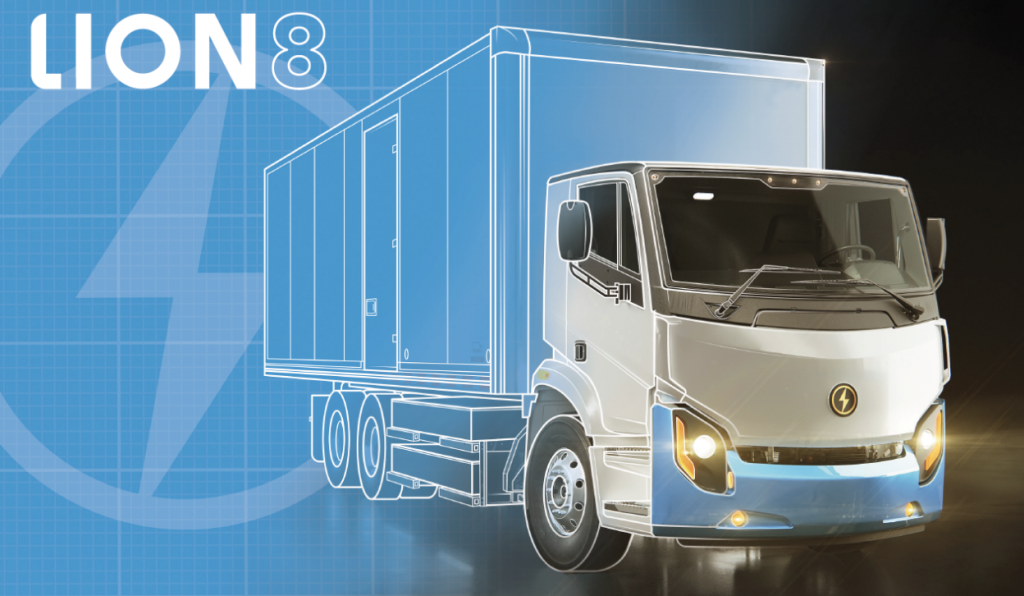
This is a heavy-duty truck with roughly 20 cubic yards of capacity and up to 250 miles of range, which, according to trucknews.com, “aligns with the work completed by about 45% of the class 8 trucks sold in North America.” It can be modified to include a fully automated arm and auger compactor for refuse and recycling collection. Trucknews.com also projects that maintenance for the Lion 8 will be about 60% cheaper than traditional diesel class 8 trucks.
Phoenix V2G Zeus
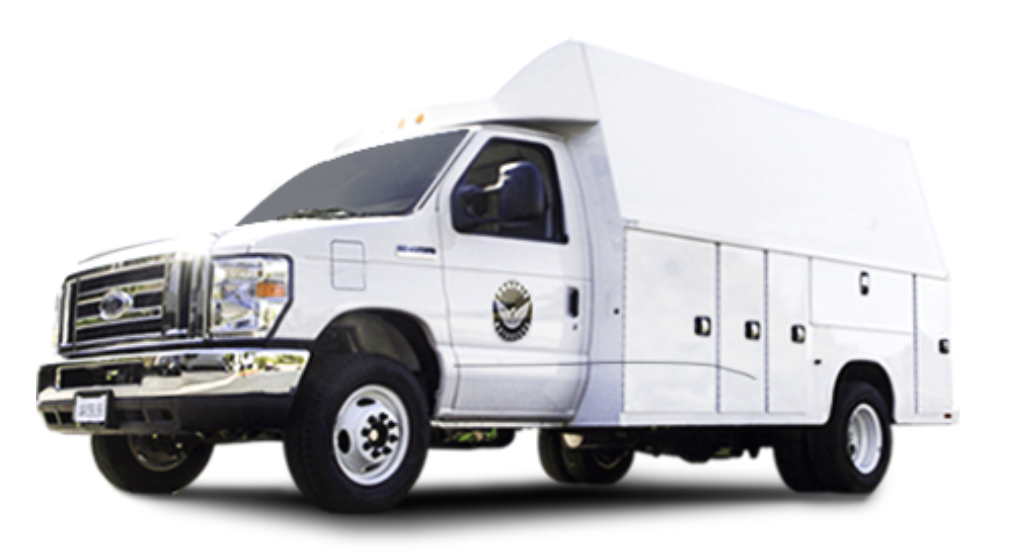
This is a medium-duty truck that can be customized into a flatbed, utility, box truck, refrigerated truck, animal control vehicle, and more. It has an E450 chassis, regenerative braking and up to 150 miles of range, making it a suitable fit for all kinds of industries. The Phoenix costs less than its diesel counterparts to buy, operate and maintain, according to the manufacturer’s website.
Hyundai Kona Electric
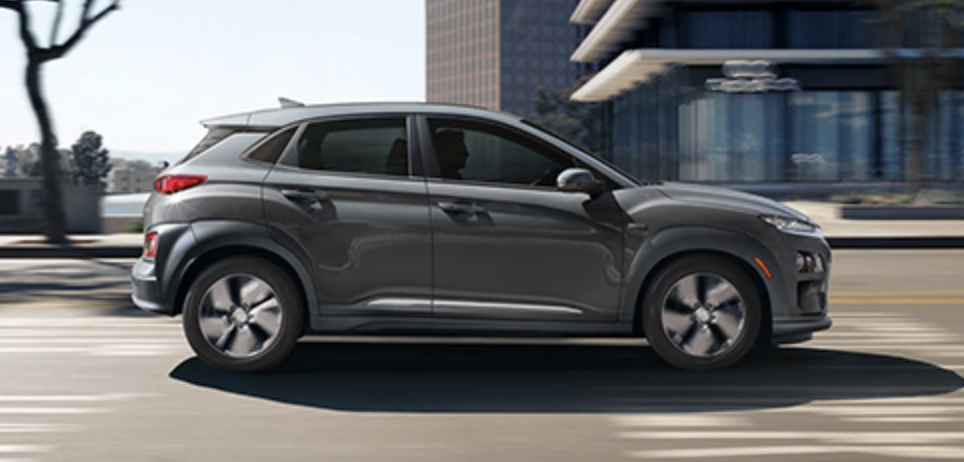
Classified as a subcompact sport utility vehicle, this comes in three different trims that all bear 258 miles of range on a single charge and plenty of comfort, all for the cost-friendliness people have come to love about Hyundais. They make for a very popular rental vehicle but also prove to be efficient and reliable for city government or small, service-related fleets.
GreenPower School and Shuttle Buses
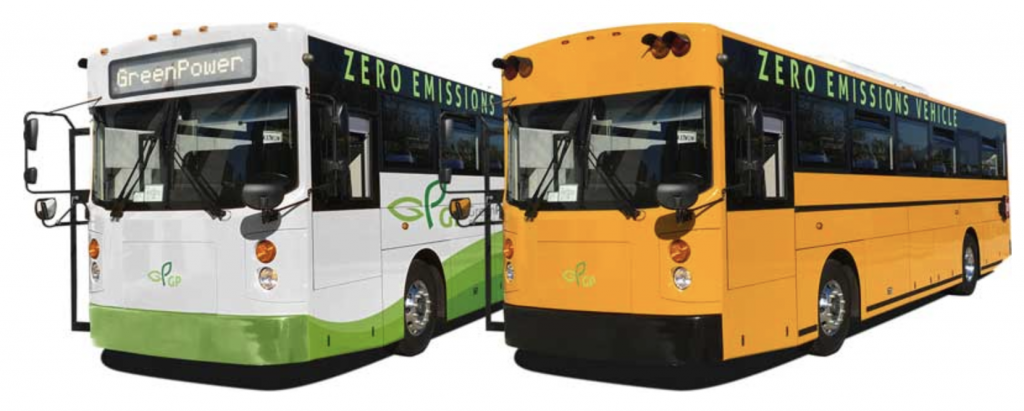
These 36.5-foot passenger vehicles have up to 140 miles of range on a single charge. Capable of reaching 65 mph, they, too, recharge when the brakes are pressed. The school bus model seats 72 passengers while its shuttle-bus counterpart is more spacious, with seating for 48. At zero emissions and a 20-year life expectancy, they’re ideal for transporting students, seniors, tourists or pretty much anyone around town.
What kinds of businesses are you seeing convert to EV? Is your business considering fleet electrification? We’d love to know! Share a pic with us on LinkedIn or Twitter, or email us here.
For more information on BlastPoint EV Solutions, check out this case study.

